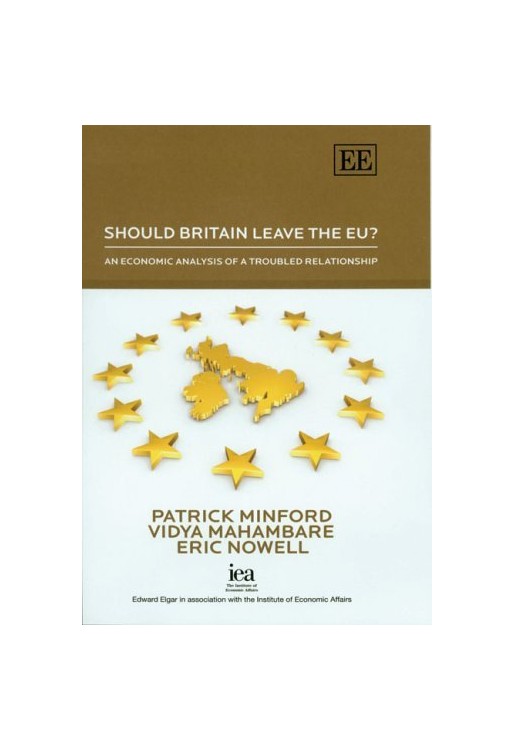This controversial, challenging and timely book carefully reviews the economic aspects of the UK's relationship with the EU: trade in goods and services, the single market, tax and regulation, public finances, and monetary policy.
The authors argue that the EU has chosen to place political integration before market liberalisation and has followed policies of protection not merely in agriculture, but also in manufacturing trade, while leaving continental countries' restrictions on trade in services largely intact. The UK, meanwhile, has developed into a service-based and relatively deregulated economy, and a net importer not merely of food but also of manufactured goods. As such, the book finds that the UK is severely damaged by the EU's current policies, as indeed is the general mass of the people within the rest of the EU.
The book goes on to consider ways in which the political advantages of collaboration within Europe can be maintained while eliminating this damage. It suggests that either:
* EU policies should radically change towards the adoption of new policies of free trade, competition and deregulation (to the greater benefit of EU citizens generally), or
* the UK should renegotiate the UK's terms of membership to avoid the damaging effects of existing EU policies, or
* the UK should simply leave the EU, continuing with co-operation in chosen fields.
Concluding that the economic costs of UK membership of the EU greatly outweigh the benefits, this thought-provoking book will be of profound interest to policymakers, economists, and informed people generally, not to speak of the broader public vitally concerned about the referendum on the EU draft constitution. 'This is probably the most comprehensive attempt to quantify the costs and benefits of UK membership of the EU, certainly in recent years. . . The study is an interesting and deliberately provocative one that makes an important contribution to a long-standing debate in the UK.' -- Robert Read, Journal of Regional Science 'The book makes a useful addition to the debates about the most appropriate future texture of Britain's relations with the EU. . .' -- Oliver Daddow, Journal of Contemporary European Studies 'Minford, Mahambare and Nowell's book appears in the moment when there is a wide and serious discussion about the purpose and future direction of the EU. . . This is a thought-provoking book. It ought to be read by all interested in European integration.' -- Miroslav N. Jovanovic, Economia Internazionale 'This is an important book for the business economist; an exemplary illustration of business economics in action. . . This book deserves to be widely read. By teachers and by experts on the analysis of international trade and of cartels in particular. By those who are interested in the changing structure of UK industry; it is particularly good on the services sector. And especially by economic commentators. . .' -- Christopher Johnson, The Business Economist 'A controversial but courageous book of impressive scholarship.' -- The Commonwealth Lawyer 'This penetrating and important analysis of the economic cost of the EU will no doubt be brushed aside by some but should be taken seriously by anybody who dares to think dispassionately. Patrick Minford and his colleagues have constructed a formidable case that cannot be ignored. Europe's so-called free trade turns out to be anything but free. Hopefully this book will prise open a more rational argument.' -- The Rt Hon Lord Lamont of Lerwick 'This impressive study does two things brilliantly. It provides me with my first ever opportunity to agree with Patrick Minford on anything. It provides the public with a penetrating analysis of just what's wrong with our relationship with the EU. It isn't good for us.' -- Austin Mitchell, MP, House of Commons, UK
Contents: Preface Part I: Costs and Benefits of UK Membership of the EU - A Policy Analysis 1. Introduction, Summary and Conclusions: Why the UK Should Renegotiate or Leave the EU 2. Evaluating European Trading Arrangements 3. Other Issues: Currency, Regulation and Public Finance Part II: Background Analysis of Trade 4. Agriculture 5. Manufacturing 6. Services 7. Evaluating the Costs and Benefits of the EU Trade Arrangements Part III: Overall Conclusions of the Analysis 8. Last Thoughts: What is to be Done? Bibliography Index


